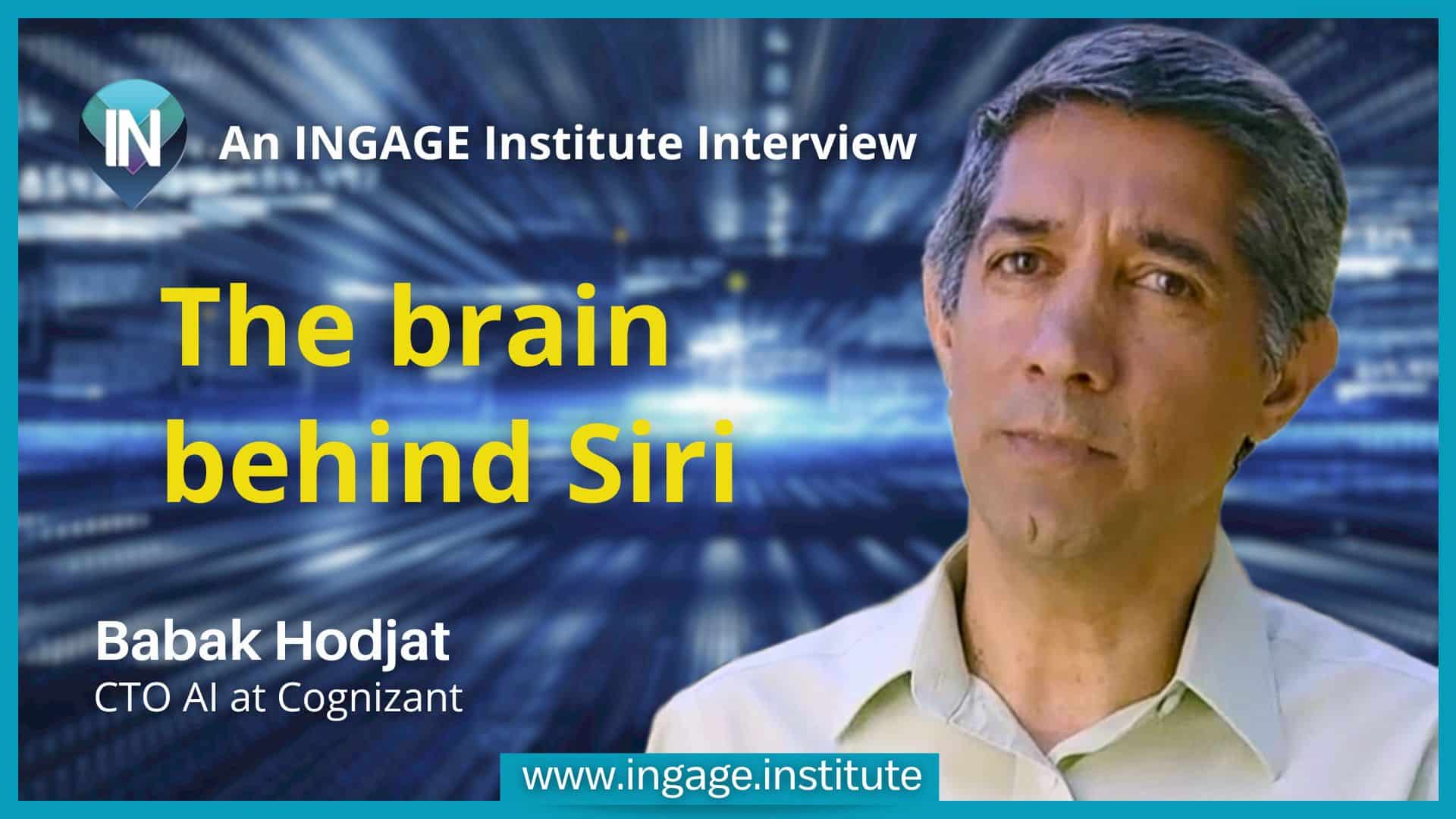In an exclusive interview, Philippe Séjalon, CEO of the INGAGE Institute, had the opportunity to speak with Babak Hodjat, Chief Technology Officer of Cognizant and the original inventor of Siri’s natural language technology. Hodjat offers unique insights into the development and future of artificial intelligence, highlighting both the opportunities and challenges that lie ahead.
When asked about his role in the development of Siri, Babak Hodjat explained: “I was basically the founder of a precursor to Siri, a company called Dejima.” Siri’s evolution from a simple voice assistant to a sophisticated AI system has surprised many, including Babak himself. “Even those who were involved in the development didn’t expect this level of intelligent behavior,” he noted. The phenomenal capabilities of models such as GPT-4 and others are based on their ability to learn and understand languages without explicit programming.
Hodjat describes the last few years as a time of amazement and surprises in the field of AI. Rapid advances in technology have enabled AI systems to become much more powerful – especially through models such as GPT-4 and Gemini. These systems learn from enormous amounts of data, enabling them to not only understand languages, but also draw complex logical conclusions and generate creative content. The phenomenon was unexpected for many developers, as they had not expected such rapid evolution.
A key aspect that Hodjat emphasizes is that many of these advances are not due to fast programming, but to learning from data. By scaling up and processing huge amounts of data, AI has achieved a form of intelligence that enables it to act adaptively. This fundamentally changes human-machine interaction and opens up numerous fields of application.
Challenges and limits of current AI
Despite the impressive progress, Hodjat also identifies significant challenges. One key issue is the lack of online learning in current AI models. Although these systems can learn from historical data, they are not able to adapt to dynamic environments in real time. Hodjat warns against overestimating these models, as they are still a long way from achieving the full spectrum of human intelligence. The development of truly flexible AI that is able to process and learn new information in real time remains a key challenge.
Education in the era of AI
One of the most profound aspects of AI development is its impact on the education system. Hodjat emphasizes that a re-evaluation of education is necessary to prepare future generations for the challenges of the AI-driven world. At a time when AI can do many traditional tasks better, it is crucial to develop skills that go beyond mere technical knowledge, see also the interview with John Madellin.
He draws a comparison to the early days of social media, where the resulting societal changes were not sufficiently addressed in education. Hodjat advocates a proactive approach where educational institutions learn how to deal with AI and use the new technologies effectively. Students should learn skills such as critical thinking, ethical decision-making and creative problem-solving skills.
Use cases in the insurance industry
Hodjat’s perspectives on the use of AI in the insurance industry are particularly insightful. According to him, AI systems have the potential to significantly optimize processes in underwriting and risk management. They can analyze large volumes of data and identify patterns that may be overlooked by humans. This leads to more precise risk assessments and better premium models.
AI-driven analysis can improve the customer experience by creating customized policies based on the individual needs of the insured. Hodjat emphasizes that the interaction between humans and AI will become more important as insurance companies increasingly rely on technologies that enable more efficient decisions.
The energy consumption of AI
A key issue that Hodjat addresses is the energy consumption associated with AI models. The training and operation of these models require considerable computing resources, which leads to high energy requirements. Hodjat explains that this high consumption represents a major challenge, particularly in terms of the environment and sustainability.
He emphasizes that the trend in AI development is increasingly moving towards energy-efficient models and algorithms. On the positive side, researchers are actively working on optimizing AI systems so that they require fewer resources and remain efficient at the same time. These efforts are crucial to ensure the sustainable development of AI.
A call for diversity in research
Babak Hodjat’s findings make it clear that the future of artificial intelligence brings both opportunities and challenges. There is an urgent need for investment in diversity and innovation in research to drive the development of AI responsibly. Hodjat calls for improved collaboration between science and society to maintain control of the technologies and ensure that AI systems are developed in the best interests of humanity.
It is up to us to take proactive steps to ensure that AI serves not only as a tool to improve efficiency, but also as a means to promote human progress. Encouraging education, creative approaches and responsible research will form the basis for AI to continue to have a positive impact on our society in the future.
Binci Heeb
Read and watch also: Video #5: Sonja Kohn, entrepreneur – “Modesty is one of the ingredients for success”
If you are also interested in a video interview (a collaboration between INGAGE Institute and thebrokernews) like this one, please call me at 079-353.08.00 or write to me at: binci.heeb@thebrokernews.ch





